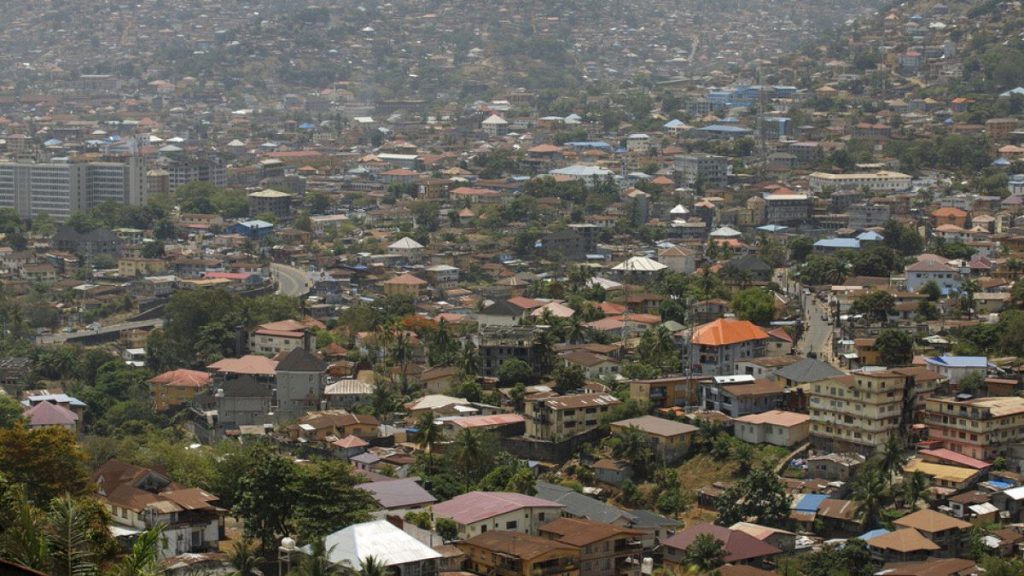The Case of Jos Leijdekkers: A Dutch Drug Lord’s Alleged Haven in Sierra Leone
Jos Leijdekkers, a 33-year-old Dutch national, stands accused of orchestrating the smuggling of over 7,000 kilograms of cocaine, solidifying his reputation as a major figure in international drug trafficking. Last year, a Rotterdam court sentenced him in absentia to 24 years in prison, placing him on both Europol’s and the Netherlands’ most wanted lists. Leijdekkers’ notoriety stems not only from the sheer volume of cocaine he allegedly trafficked but also from the vast sums of money and gold believed to have been laundered through his illicit operations. Dutch authorities estimate the laundered assets to be in the tens of millions of euros and hundreds of kilograms of gold, highlighting the scale and reach of his criminal enterprise. His alleged presence in Sierra Leone has raised serious concerns about the West African nation’s role as a transit hub for cocaine trafficking from Latin America to Europe.
The narrative takes a dramatic turn with the emergence of photos and videos purportedly showing Leijdekkers attending a church service in Tihun, a remote town in southwestern Sierra Leone, on January 1st. Adding to the intrigue, the footage places him in close proximity to Sierra Leone’s President, Julius Maada Bio, and his family. Reports even suggest a connection between Leijdekkers and President Bio’s daughter, Agnes, alleging a marital relationship. While these reports remain unconfirmed, their implications are significant, potentially suggesting high-level complicity in harboring a fugitive. The Sierra Leonean government has launched an investigation into these reports, pledging cooperation with Dutch authorities, Interpol, and other international law enforcement agencies. President Bio’s office has denied any knowledge of Leijdekkers’ identity or the allegations surrounding him, asserting that his presence at the church service was part of routine family engagements during the festive season.
The Dutch authorities have prioritized Leijdekkers’ apprehension and extradition, offering a record reward of €200,000 for information leading to his arrest. This unprecedented sum underscores the gravity of the charges against him and the Dutch government’s determination to bring him to justice. The investigation into Leijdekkers’ alleged presence in Sierra Leone involves a complex interplay of international law enforcement agencies, national governments, and media scrutiny. The case highlights the challenges of pursuing high-profile fugitives across international borders and the potential for corruption and complicity within host countries.
The situation is further complicated by the historical context of West Africa as a transit point for drug trafficking. The region’s porous borders and often fragile governance structures have created opportunities for criminal organizations to exploit these vulnerabilities. Leijdekkers’ alleged presence in Sierra Leone raises questions about the effectiveness of efforts to combat drug trafficking in the region and the potential for high-level corruption facilitating these illicit activities. The unfolding investigation promises to shed light on these issues and the extent of Leijdekkers’ involvement in the region’s drug trade.
Meanwhile, in a separate but related incident, former Belgian football star Radja Nainggolan was arrested in Belgium as part of a broader investigation into cocaine trafficking from South America to Europe. This arrest underscores the international dimensions of the drug trade and the interconnectedness of criminal networks operating across continents. Nainggolan’s arrest, along with the seizure of cocaine, cash, and luxury goods during police raids in Belgium, highlights the significant resources and coordination required to combat these sophisticated criminal operations.
The convergence of these two cases – the investigation into Leijdekkers’ alleged presence in Sierra Leone and Nainggolan’s arrest in Belgium – underscores the global reach of the cocaine trade and the challenges faced by law enforcement agencies in combating this illicit industry. The Leijdekkers case, with its potential implications for high-level corruption in Sierra Leone, coupled with the Nainggolan arrest in Belgium, paints a vivid picture of the complex web of individuals and networks involved in the international drug trade. The ongoing investigations will undoubtedly reveal further details about the intricate workings of these criminal enterprises and the efforts to bring those responsible to justice.














